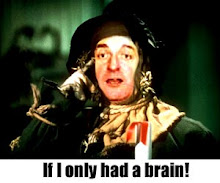Puncture
Initially 'Puncture' appears to be yet another reworking of 'The Verdict'; a washed up lawyer goes up against the might of the medical establishment in pursuit of justice and redemption. But there are some not altogether nice surprises in store for the unwary viewer.
Mark Weiss (Chris Evans playing well against type), is a lawyer in need of redemption. Instead of a drunk (like Paul Newman's character in the earlier film), Weiss is a womanising junkie. When a nurse contracts AIDS after an accidental infection from a syringe, she asks him to tackle hospitals, and the huge medical supplies provider behind them, about their refusal to adopt safety needles, a simple measure that would prevent further accidents. But as the big lawyers line up in opposition, his wife leaves him and his addiction becomes more crippling. All this while his pragmatic partner tries to pay their mounting bills.
So far 'Puncture' seems to be following the traditional three act structure, hitting its plot points on cue, just as 'The Verdict', a model of the classic Hollywood narrative, did before it. However, as the film progresses and the level of Weiss's addiction becomes apparent, bewilderment starts to set in. This man is beyond redemption; he can barely function. And yes, the movie should dip in the second act, but this much? And shouldn't things start to take an upward swing as we enter the third act? It all seems too dark. How the hell can they possibly win?
It is at this point that I should have remembered those printed words at the start: 'Based on a true story'. Truth may not always be stranger than fiction, but it can be darker. As the key phrase of the movie puts it, 'sometimes the brightest light comes from the darkest places'.
Most of the darkness , it has to be said, originates with the 'good' guys. In fact the bad guys are pretty standard fare. We have the clichéd 'something must be done' scenes with grim faced corporate types in dark offices, but nothing original. Only a refreshingly cynical speech by the main defence lawyer towards the end gives anything other than one-dimensionality to these traditional forces of darkness. Nope, Weiss's main enemy is himself, even accepting the implication the movie makes towards the end.
Luckily the film's main strength is in its depiction of its self-destructive protagonist and it is probably least convincing when we see him pull himself together. One way or the other, Chris Evans does himself no disservice in the role. If he doesn't quite wring a Travis Bickle like intensity from his material, he doesn't stoop to making himself uncomplicatedly likable either. The rest of the largely unshowy cast are fine too, though Michael Biehn is wasted as an ambiguous lurker in the background.
In the end, 'Puncture' reneges on its promise of courtroom fireworks. Unlike 'The Verdict', the legal battle ultimately takes second place to the personal, though not before we have been drawn into the former. It thus proves frustrating, ending where we might expect the real story to begin. This doesn't mean it fails though, for aggravating though Weiss appears, he ultimately wins some level of admiration, regardless of how unrealistic is the final course the film attributes to him. He intrigues us and his well placed sense of justice inspires. In short he wins his psychological case, persuading us the jury that he is worth our emotional investment.
No barrel of laughs, and no rousing David and Goliath courtroom drama neither, 'Puncture' ultimately succeeds in its heart-felt affirmation of justice and its celebration of a flawed individual.
Labels: Film

